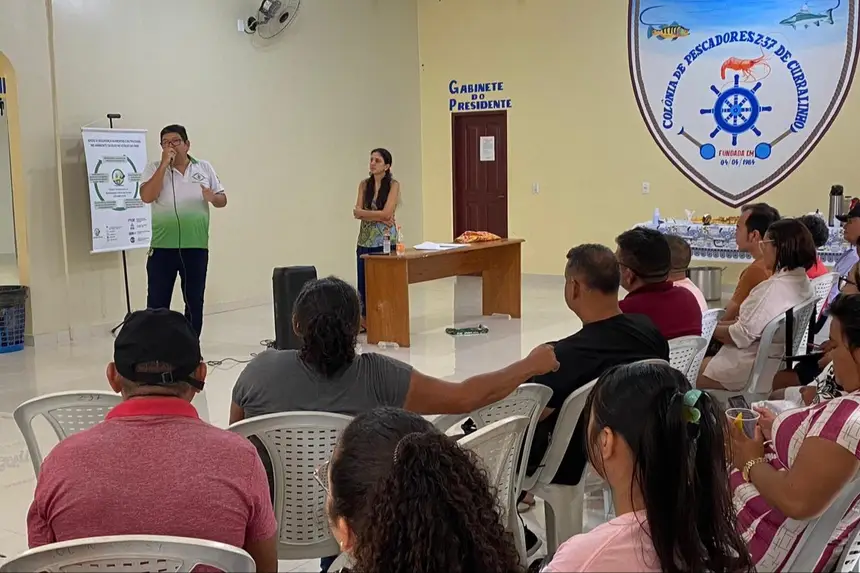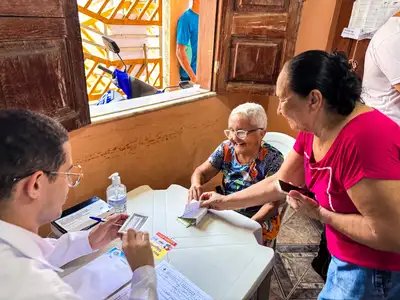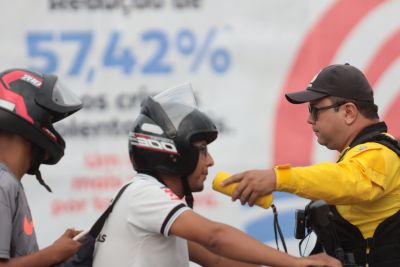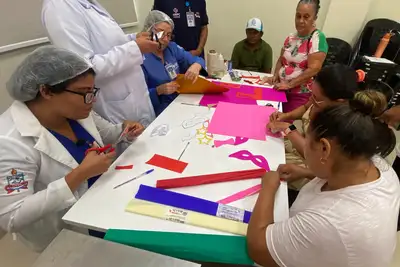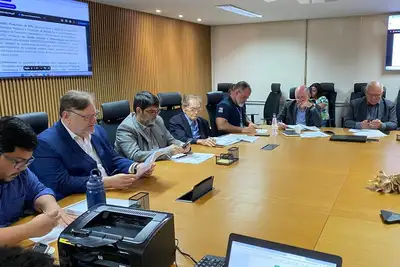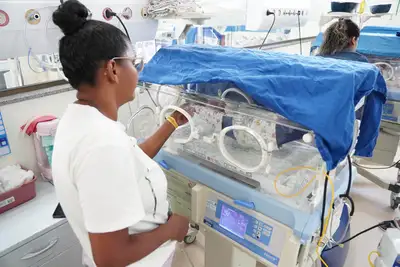Emater encourages farmers from Marajó to supply products for school meals
Discussions also address public agents and representatives of indigenous peoples and traditional communities, such as indigenous and quilombola.
This week, the Technical Assistance and Rural Extension Company of the State of Pará (Emater) gathers farmers from eight municipalities in Marajó for dialogues about the National School Feeding Program (Pnae).
The Regionalized Workshop on Family Agriculture for the Pnae started in Breves on June 10 and 11, with families from that municipality and from Bagre, Gurupá, and Portel, and extended, on this Thursday (12) and Friday (13), to Curralinho, with an audience also from Muaná, Oeiras do Pará, and São Sebastião da Boa Vista.
The event is promoted by the regional and local offices of Emater in partnership with the Collaborating Center for School Food and Nutrition (Cecane) of the Federal University of Pará (Ufpa) and with the Deutsche Gesellschaft für Internationale Zusammenarbeit (GIZ) GmbH, from the German government, among other institutions. Public agents from various agencies and representatives of indigenous peoples and traditional communities, such as indigenous and quilombola, also participate.
“This is an opportunity for all social actors involved to communicate about the step-by-step, supply and demand of school meals in each municipality and in Marajó in general. One of the main obstacles to access is ignorance. The role of Emater is crucial in this process of appropriation by farmers,” indicates the regional supervisor of Emater in Marajó, sociologist Alcir Borges, a specialist in Public Management and Society.
For Emater, the products with the greatest potential to compose school meals in Marajó are açaí, shrimp, water flour, tapioca flour, seasonal fruits, and river fish. The latest updates to federal law No. 11,947/2009, also known as the Pnae Law, since 2023 defined traditional communities, indigenous peoples, and women as priority groups. The estimated profit for farmers in marketing is around 30%.
For nutritionist Hellen Cristina Moraes from Cecane, the guidelines for healthy eating are an integrated goal of public policy, highlighting the Pnae tool: “Under the context of current legislation, the outlook is one of sustainability and results, including combating hunger and malnutrition. Many students depend on school meals as their only meal of the day, so it is essential that we think of a menu, a supply, that includes fresh and regional foods linked to food traditions: it is the approach of ‘real food’,” she explains.
Practices
In Curralinho, the Workshop takes place at the headquarters of the Fishermen's Colony Z-37, in the Airport neighborhood, with the presence of 60 people. According to the head of the local Emater office in Curralinho, Artemas Ribeiro, a forestry engineer, one of the awareness proposals led by Emater is the diversification of products.
“We clarify that absorption goes far beyond açaí and flour: it is possible, and desirable, that pineapple and cupuaçu, for example, be options for income generation with guaranteed prices for farming families and for student consumption. In fact, we advocate for all culinary utilization: açaí porridge, pineapple pudding, juices, desserts, as a form of appreciation,” points out Artemas.
Attentive to the program, farmer Cláudio Ferreira, 39, a resident of the banks of the Pucu River in Curralinho, reports that last year he supplied free-range chicken for the school meals of the municipality, already expressing interest for this year: “It was a great incentive. With the resources, I increased egg production and invested in my farm. I think the initiative is essential for family farmers,” he summarizes.
Text by Aline Miranda


